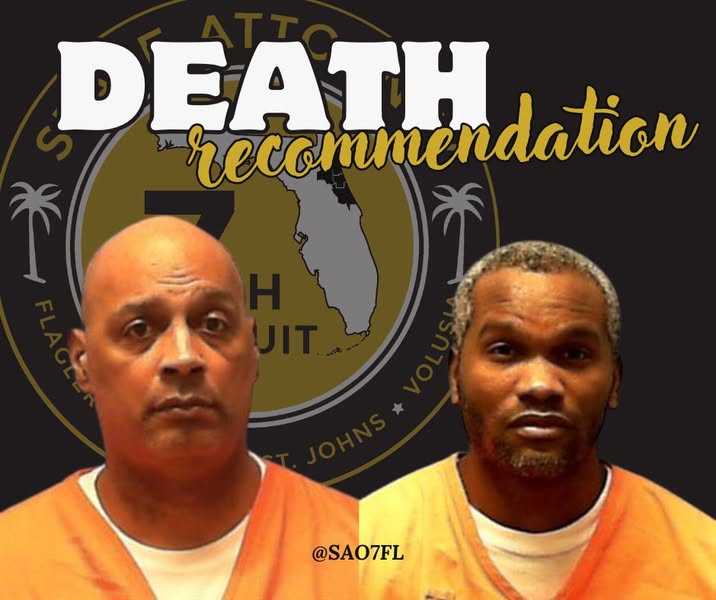Volusia County Jury Recommends Death Penalty for Troy Victorino and Jerone Hunter in 2004 Mass Murder Case
On April 20, 2023, after a week and a half-long resentencing hearing, a Volusia County jury made a pivotal decision, recommending the death penalty on all counts for Troy Victorino and Jerone Hunter. This decision followed their involvement in the deadliest mass murder in Volusia County history, which shocked the local community and remains a somber chapter in the region’s criminal history.
Victorino and Hunter, now 48 and 38, were initially convicted and sentenced to death in 2006 for their roles in a heinous crime that took place in 2004. The two men, along with their co-defendants Michael Salas and Robert Cannon, broke into a Deltona home with the intention of robbery but ended up committing one of the most brutal murders in Florida’s recent history. Over the course of a terrifying and violent ordeal, the defendants beat and stabbed six victims and a dog to death with baseball bats. The brutality of the crime left the community reeling, and the horrific details of the murder case garnered widespread media attention.
While the convictions of Victorino and Hunter remained intact, their death sentences were nullified in 2018 due to a Florida Supreme Court ruling that mandated unanimous jury recommendations in capital cases. This ruling had a significant impact on many cases, including those of Victorino and Hunter, as their previous sentences were no longer legally enforceable. This led to the resentencing hearings that would ultimately determine whether they would once again face the death penalty.
In 2023, a new chapter in the legal saga began. On April 20, the jury was seated to begin the resentencing process. However, the very same day, a significant change in Florida law was announced. Governor Ron DeSantis signed a bill that authorized a new non-unanimous sentencing standard in capital cases, shifting the requirement from a unanimous vote to a majority vote of 8-4. This development led to a mistrial in the ongoing resentencing hearing, forcing the court to begin the process anew under the newly enacted law.
In the following month, a new jury was seated to hear the case, and the resentencing proceeded under the revised legal framework. The jury, after reviewing the evidence and hearing the arguments from both the prosecution and the defense, voted in favor of the death penalty for both Victorino and Hunter. While this recommendation is a significant step forward in the legal process, it is important to note that the final sentencing decision lies with the judge. The Honorable Dawn Nichols, the presiding judge, is expected to announce the final sentence at a later hearing.
State Attorney R.J. Larizza expressed his satisfaction with the jury’s decision, emphasizing the importance of justice for the victims and their families. He stated, “We are one step closer to making justice a reality for the victims and their families,” underscoring the long road to accountability in this tragic case.
Assistant State Attorneys Heatha Trigones and Andrew Urbanak played a key role in successfully presenting the state’s case, arguing persuasively for the death penalty. Their efforts, along with the dedication of the prosecution team, were instrumental in securing the jury’s recommendation.
The case of Troy Victorino and Jerone Hunter remains a chilling reminder of the depths of violence that can emerge from human nature, as well as the complexities of the justice system in handling such brutal crimes. The decision to seek the death penalty reflects the gravity of their actions, but the ultimate resolution of the case will depend on the final sentencing by Judge Nichols.
For the victims’ families, the legal proceedings have been an emotional and arduous journey, marked by years of uncertainty and delays. However, with the jury’s decision, they are one step closer to a sense of closure, though the scars of the tragedy will never fully fade. The case continues to serve as a somber testament to the pain of loss, the pursuit of justice, and the difficult decisions faced by the legal system in determining appropriate punishment for such an unspeakable crime.





